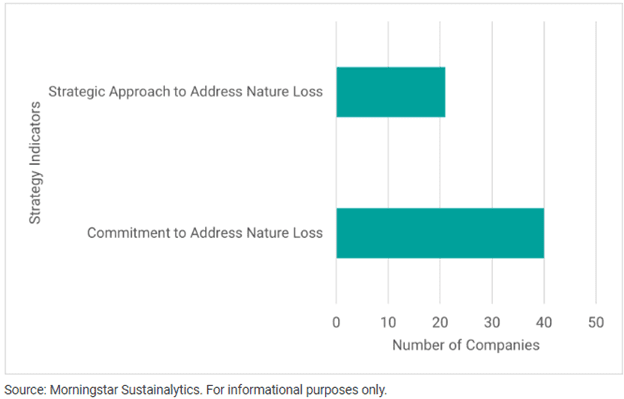Key Impact Points
- Private Sector Struggles to Meet Biodiversity Targets: Despite recognizing biodiversity as a critical issue, many companies lack comprehensive strategies and board-level oversight.
- Governance Gaps: Only 26 out of 50 companies have board-level oversight of biodiversity issues, highlighting the need for stronger governance.
- Collaboration Is Key: Morningstar Sustainalytics emphasizes the importance of government and private sector collaboration for effective biodiversity risk management ahead of COP16.
Overview
As the world looks ahead to the 2024 United Nations Biodiversity Conference (COP16), a new report from Morningstar Sustainalytics reveals that many private sector companies are still in the early stages of managing the risks posed by biodiversity loss. While there has been progress over the past two years, companies are grappling with governance challenges and strategic gaps in addressing biodiversity issues.
In an analysis from Morningstar Sustainalytics’ Biodiversity and Natural Capital Stewardship Program, Engagement Manager Gayaneh Shahbazian highlights the disparity between corporate commitments and actionable strategies. Despite growing recognition of biodiversity as a material issue, many companies are struggling to translate high-level commitments into effective governance and strategic actions.
Commitment vs. Strategy: A Significant Gap
Morningstar Sustainalytics’ analysis underscores the mismatch between corporate commitments and strategic action on biodiversity. Of the 50 private sector companies assessed, 43 recognize biodiversity as a material issue, and 40 have made high-level commitments to address biodiversity loss. However, only 21 companies have developed a formal strategy to meet biodiversity goals, indicating a gap between intentions and execution.

Furthermore, only 26 companies have established board-level oversight on biodiversity matters, suggesting a lack of governance and expertise to effectively manage these risks.
Gayaneh Shahbazian noted: “Despite progress in private sector action on biodiversity over the past two years, our Stewardship Program highlights that many companies are still in the early stages of addressing biodiversity risks, as reflected by the lack of governance, board-level expertise, and strategic approaches to address the issue.”
The Path Forward: Collaboration for Success
As COP16 approaches, collaboration between governments and the private sector will be crucial for the successful implementation of the Biodiversity Plan, as companies will need to align their strategies and governance to meet global biodiversity targets effectively.
Conclusion
With the 2024 United Nations Biodiversity Conference (COP16) on the horizon, it is clear that while the private sector has made strides in acknowledging biodiversity loss as a critical issue, there is still significant work to be done. The gap between high-level commitments and actionable strategies must be closed, and governance structures need to be strengthened. Collaboration across sectors will be essential to ensure the successful implementation of the global Biodiversity Plan.
Related Article: Do Investors Care about Biodiversity?

 Follow SDG News on LinkedIn
Follow SDG News on LinkedIn











